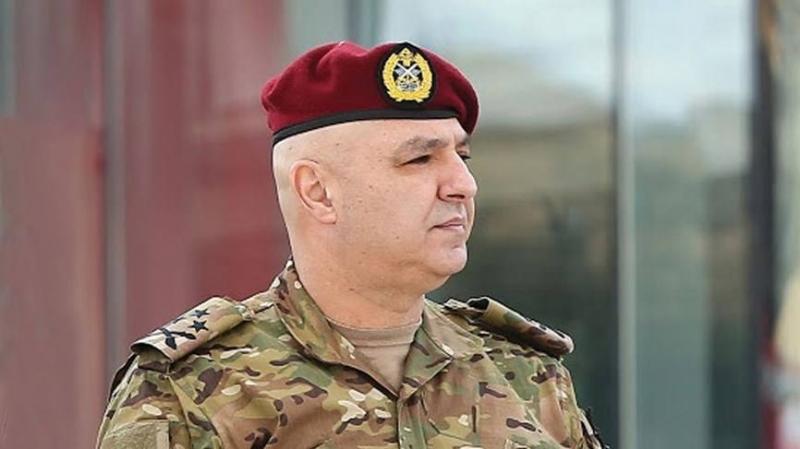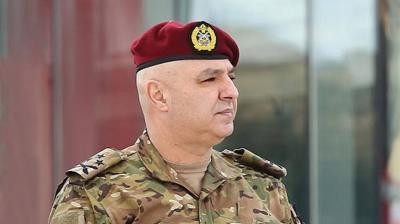Political forces are seriously considering the nomination of Army Commander General Joseph Aoun for the presidency. However, on the path to translating this nomination into an election, there are many obstacles and ongoing negotiations surrounding potential settlements and concessions. Discussions have opened around a constitutional amendment that would pave the way for the election of General Aoun as president. This does not mean that a decision has been made to elect Aoun unconditionally. The political bargaining has opened on several fronts, starting from the speakership of parliament and extending to the Christian political forces and Hezbollah.
Through this political bargaining, various data and interpretations can be gleaned regarding what any of the directly involved parties might resort to in making concessions for Aoun’s election or firmly maintaining opposing positions to the very end. Preliminary conclusions from recent discussions suggest that any internal or external agreement facilitated by Qatar on behalf of the Americans or the French regarding promoting the Army Commander’s name to the top of the main candidates means that "there is no agreement to resolve the Lebanese crisis; it is merely an election of a president to manage the crisis, or more precisely, a 'static' president." This can also be interpreted more broadly to imply that the concerned countries are still hesitating to finalize basic options related to Lebanon while waiting for further clarifications regarding the conditions of regional countries, including Ukraine. In this context, the Army Commander carries certain attributes—or lacks them—in a delicate economic and financial situation, which equates to a temporary solution being the election of a president who does not offer a rescue plan but instead facilitates minor adjustments to the ongoing crisis by unraveling the presidential knot, and nothing more.
Thus, there are discussions about gradually proposing a constitutional amendment such that the discourse around it becomes an opportunity to open a crack in the wall of the presidential crisis, gauging the pulse of what the concerned forces, particularly the Christian ones, might be willing to accept or reject regarding the constitutional amendment or the election of Aoun without a constitutional amendment and without opposing reactions. There is talk that the Lebanese Forces may be the most amenable political party to compromise politically to accept the Army Commander, bearing in mind the skepticism regarding the ability of the Forces, whose leader Dr. Samir Geagea is accused of being a 'settlements hunter,' to secure the "price" of this acceptance politically and in the new era, for well-known reasons. However, the Forces are opening the path for a softened "no" rather than being absolute in their rejection of Aoun, due to reasons that surpass the traditional aversion to appointing a military figure. The Forces agree with the National Movement that there should be no establishment of a model transitioning the president from Yarzeh to Baabda.
In contrast, the head of the Free Patriotic Movement, Gibran Bassil, continues to resist Aoun's nomination. The first idea being discussed is that the base of the movement, which originally emerged from the military institution in the 1990s and beyond, could align with the Army Commander. This notion raises concerns within the leadership of the movement, despite the exaggeration in portraying the new generation of Aoun's base as closer to the army than to the movement's leadership. The second idea is that Bassil, who is engaged in a fierce battle with Hezbollah over the nomination of the Marada leader, Sleiman Frangieh, is waging the same battle concerning Aoun’s nomination. He is willing to take his fight to the maximum limit against Hezbollah.
However, there are those trying to promote the idea that the Army Commander could be the second President Michel Sleiman, meaning he would not transform into an independent power despite emerging from a supportive military institution, unlike what Frangieh could represent as a political threat to him, especially considering his reliance on a key ally, Parliament Speaker Nabih Berri. This further implies that Bassil's fears about his inability to create a nucleus within the authority to support him, even if it were not as robust as during President Michel Aoun's term, are unfounded. However, the leadership's anxiety stems from the belief that conditions may be different between Sleiman's circumstances and those under which Aoun might come to power now, especially in light of the rise of forces opposing Bassil and challenging his persistence as a major force in the new era, which constricts his options. Thus, Bassil views Aoun's nomination as a matter of life or death, just as he does with Frangieh's nomination.
Opening the door to negotiations early regarding the Army Commander's nomination simultaneously indicates that those initiating the bargaining are aware of the magnitude of promoting the Army Commander internally—akin to the promotion of Sleiman in Doha and the events before and after—and what Bassil will demand as a price, along with other political forces. Here, it is worth noting Hezbollah's position on this nomination.
In some respects, the election of Aoun could provide an exit for the party, given the regional external intersections without appearing to retreat from its stance, particularly since it has not publicly announced support for Frangieh and has consistently proposed consensus on a new president rather than clinging to a singular candidate. Electing Aoun merely as a crisis management president, rather than engaging in complex solutions concerning the core of the current system's crisis and its financial and economic ramifications, would grant the party additional time to discern external data and the developments of the regional situation, alleviating its internal burdens of conflicts that are unnecessary, especially since it has been careful to have some public meetings with the Army Commander. Both the party and Speaker Nabih Berri are not inclined to block the election of any president, whether Aoun or otherwise, before abundant agreements and settlements are made as a comprehensive package, not merely including the selection of a new prime minister.
While Berri has overcome the blockage posed by Bassil even before the end of the previous term, Hezbollah, despite all the tensions between them that cannot be underestimated, remains unwilling to easily bypass Bassil. The dynamics between them appear sometimes challenging to comprehend. Yet, at times, it is straightforward, as the current unequivocal stance of the movement is that the party will not surpass Bassil in nominating the Army Commander. Any alignment between them would require diverse promises in various directions, reminiscent of the assurances given during President Michel Aoun's election, and nothing less than that.




